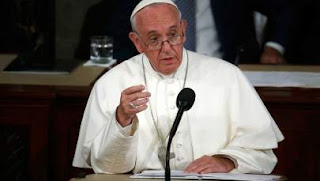Sometime in 2012, well into my second year of teaching, I
read the book Boys in Poverty: AFramework for Understanding Dropout. This book connected what I saw
happening in my classroom with trends seen around the rest of the country. It
substantiated the importance of literacy, and in particular, the importance of
early education. And though the data is stark, at best, especially for
privileged folk, it should be motivating, not immobilizing.
Maybe it would be helpful to add context to where I was when
I read Boys in Poverty. My career at
that point was serving as a “Secondary Generalist Teacher” in a small
indigenous Alaska native community. There were approximately 22 students in my
classroom spanning grades 5 through 12. I say approximately because our school’s
population varied throughout the academic year. Kids get sent off to boarding
school and kids come back from boarding school. Our village was only accessible
by airplane—one flight arriving once a day. Often kids went to town with family
and could be gone a month or more. Often kids went to town and stayed with
family and didn’t come back. There were also kids around the village not
enrolled in school, especially older adolescents. Secondary generalist means
there was the potential for me to teach any subject. I was hired as a qualified
language arts and social studies teacher for grades 7-12. Upon arriving at the
school my first day in the fall of 2010, I was told I’d be teaching math and
implementing a new reading intervention program. Generalist means you teach
whatever the district tells you to.
Boys in Poverty
was published in 2011, so this data is now at least four years old, but I
imagine not much has changed.
- Nationally, about 70 percent of students graduate from high school on time with a regular diploma, but little more than half of African American and Hispanic students earn diplomas with peers.
- Approximately two thousand high schools (about 14% of American high schools) produce more than half of the nation’s dropouts. At these “dropout factories,” the number of seniors enrolled is routinely 60% or less than the number of freshman three years earlier. “Dropout factories” produce 81% of all Native American dropouts, 73% of all African American dropouts, and 66% of all Hispanic dropouts.
- More than 1/3 of all dropouts occur in the 9th grade.
- Approximately 75% of state prison inmates did not complete high school.
- A male high school graduate with a D average is fourteen times more likely to become incarcerated than a graduate with an A average.
- Dropouts from the class of 2007 alone cost the nation nearly $329 billion in lost wages, taxes, and productivity other their lifetimes.
- Over the course of a lifetime, a high school dropout earns, on average, about $260,000 less than a high school graduate.
There isn’t one way to prevent a student from dropping out.
The framework for understanding dropout is complicated and developmentally considers
physical, emotional, cognitive and social behavior as indicators, though many
studies link dropout to literacy. Proficient readers are less likely to dropout
and some research even shows that by the fourth grade the likelihood of a
student dropping out of high school can be determined merely by measuring
reading proficiency. Reading isn’t the only antecedent. There most certainly
are many other environmental concerns that affect a student’s success, but
literacy plays a big part. Literacy doesn’t begin in high school nor does it
begin in the fourth grade. Literacy begins before a student can even read,
before they can even communicate. Infants begin cataloguing vocabulary by the
time they’re 6 months old. They begin understanding math and logic almost
immediately after they’re born. Emotional regulation begins at about the 3-month
mark. Motor coordination is always developing. These are windows of
opportunity, beginnings of literacy that start very early and according to many
researchers, impact dropout.
So, what are we to do as future clergy? According to theELCA website, Lutheran congregations and synods operate more than 1,500 early
education programs, elementary schools and secondary schools—the majority of
these being early childhood centers (preschool and kindergarten). I’m curious
what the demographics are. I’m curious about the socio-economic status of the
student’s parents. I’m curious if we’re talking all day, day care style
programming, or curriculum that emphasizes literacy. Public schools have
mandated curriculum and nation wide testing, which private schools don’t. For
better or worse, private schools have the liberty of autonomy.
When you get to your congregation what are you going to do
with your church’s pre-school? Is it the first item on the list of budget items
that can be cut? Is it stuck in the recesses of your building, someplace you
rarely visit? Do you have a preschool because you’ve always had a preschool, or
do you have a preschool because its part of the mission of your church, and a
way of serving the community? How many families in the neighborhood around your
church have children not enrolled in early childhood education?
While public school is freely available, largely funded by
property taxes, preschool is not usually free. Unless a child is part of a
special education program (SPED/IEP) they wouldn’t be authorized public
preschool (often called “Head Start”). Could your church start a sponsorship
program? Those young professionals in the congregation that don’t have children
yet. Or those older couples with older children no longer in school. Create a
scholarship program supporting families in your church’s community who can’t
afford to send their kids to preschool. Empowering individuals through early
childhood literacy could be the single most effective way of combating racial
and social inequities in our country right now.
Post five in a series of five posts for a class at Luther Seminary this semester: "Dietrich Bonhoeffer, Eleanor Roosevelt, and Martin Luther King Jr. in Dialogue with Public Theology Today."


























